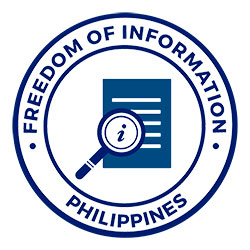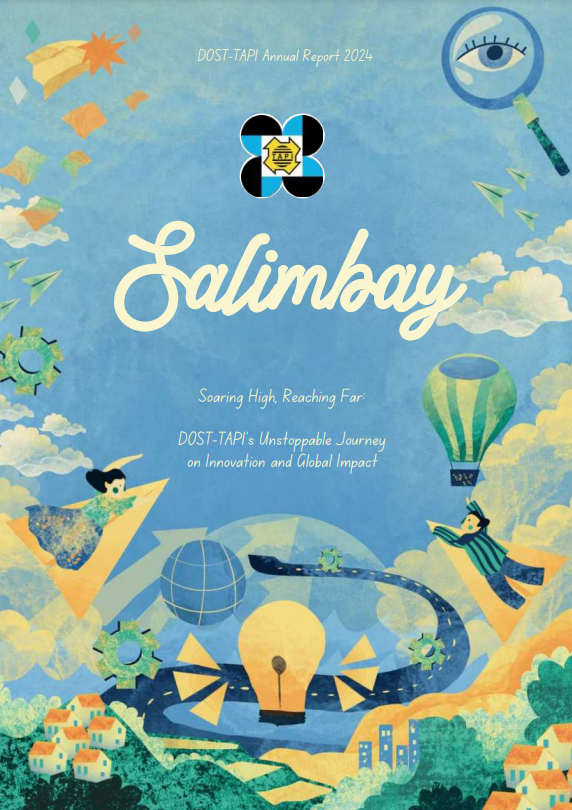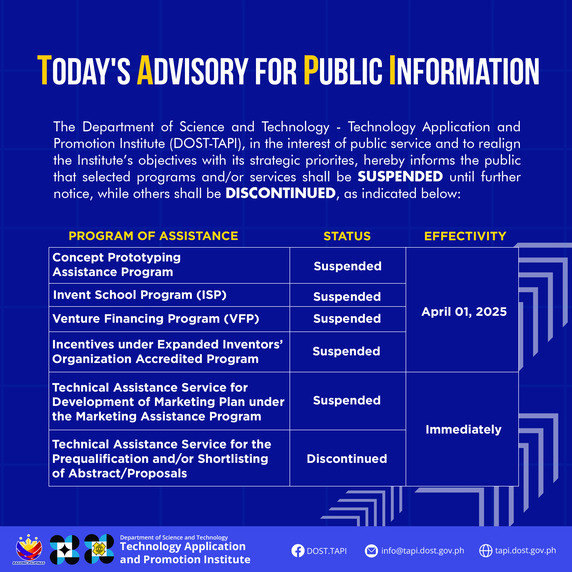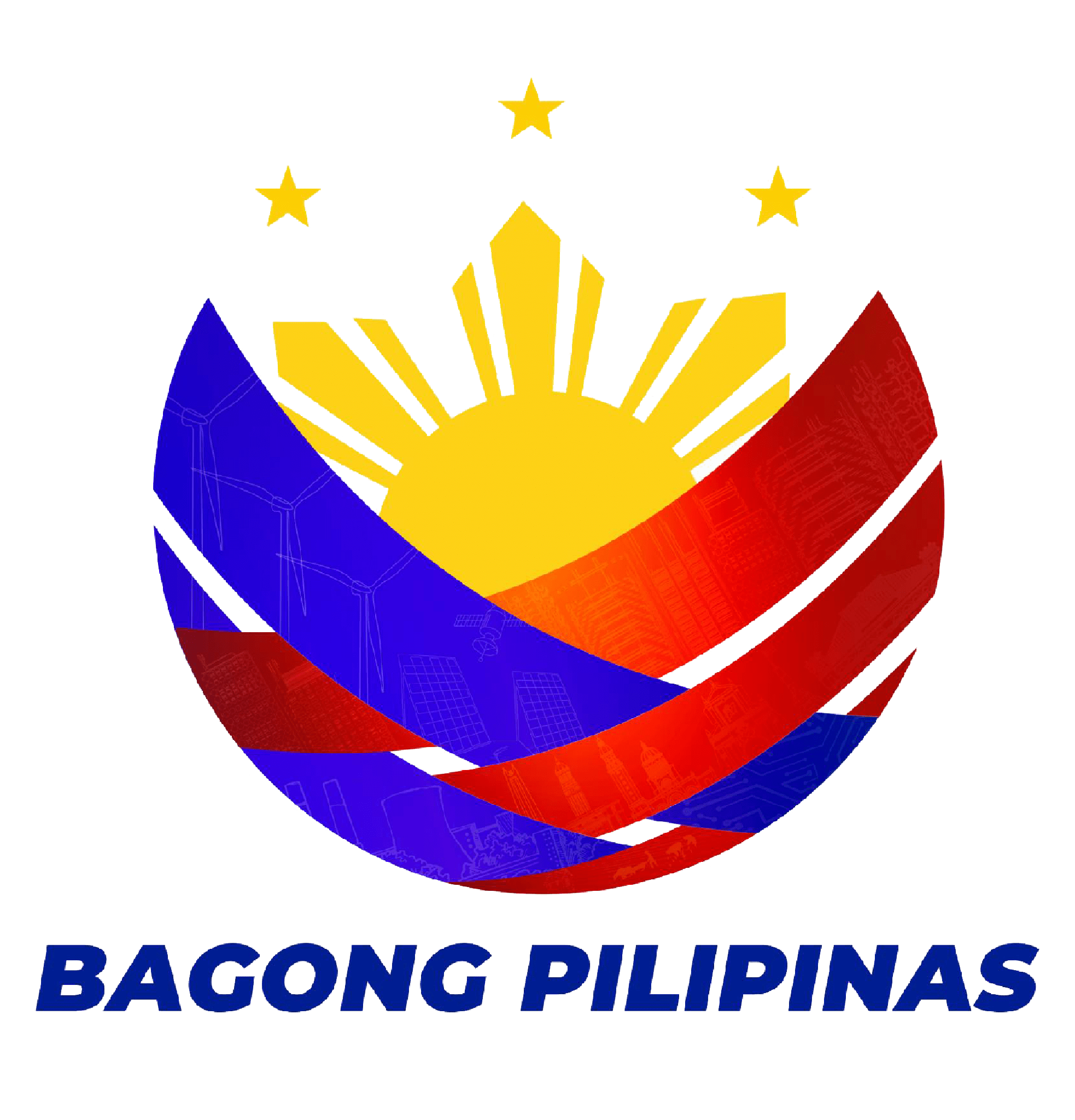By Heherson Valdez
At the Seoul International Invention Fair (SIIF) 2024, the Philippines made its mark with four groundbreaking innovations that bagged bronze and special awards in categories spanning eHealth and Safety, Agriculture, Water and Environment, and Materials Science. These homegrown inventions not only showcase the ingenuity of Filipino inventors but also highlight the country's growing role in the global innovation ecosystem.
1. eHATID LGU and SMILHIS LHIE by Institute of Philippine Culture
In remote areas of the Philippines, healthcare systems face persistent challenges such as limited connectivity, outdated infrastructure, and inefficient data management. Addressing these issues, eHATID LGU, a digital medical records system, empowers rural health centers with offline-capable technology to manage patient data, submit reports, and make data-driven decisions. Invented by Institute of Philippine Culture—School of Social Sciences at Ateneo de Manila University. , eHATID LGU transforms healthcare services in Geographically Isolated and Disadvantaged Areas (GIDAs). Its offline functionality ensures healthcare continuity even in areas with unreliable internet access, improving efficiency and service delivery. Complementing this innovation is the SMILHIS LHIE (Local Health Information Exchange), which securely integrates patient data from multiple facilities, enabling better diagnosis and treatment across the country.
Supported by the Department of Science and Technology (DOST) through its Technology Application and Promotion Institute (TAPI), these human-centered solutions exemplify the potential of Filipino innovation and invention in addressing community challenges. The systems have already proven effective, such as in Mindanao, where frequent power outages and poor connectivity no longer hinder healthcare delivery. With plans to expand capabilities into disaster response and community development, Calderon’s vision of a unified and inclusive health service platform is set to enhance efficiency and equity in public service further nationwide.
Despite the pressure of competing against 519 inventions and products, Calderon received the Special Prize for Best International Invention at SIIF 2024. “It was an unexpected moment because our innovation was specifically designed for the everyday experiences and context of the Philippine health system. I am beyond grateful for the award, as it somehow validated that what we are doing is relevant and helpful, especially for the Filipino people,” Calderon shared.
Calderon’s invention has inspired aspiring inventors to dare to make a difference that benefits the community. “Don’t get tired of thinking of different, simple, or outside-the-box solutions that can better help people. Always take on a problem-solving mindset and be collaborative,” he added.
2. iPOND (Department of Science and Technology - Metals Industry Research and Development Center)
In the Philippines, where agriculture plays a crucial role in the economy, innovative solutions are essential to address long-standing challenges and drive transformation. One such breakthrough is iPOND, an IoT-based aquaculture monitoring and control system introduced by the Department of Science and Technology - Metals Industry Research and Development Center (DOST-MIRDC). The iPOND system was developed in response to challenges faced by shrimp farms, such as the Aqua Tierra farm in Calapan, Mindoro, which struggled with manually monitoring critical water quality parameters.
By integrating sensor nodes, a control unit, and an IoT gateway, iPOND offers real-time monitoring and automation, enabling farm owners to remotely track water quality and automatically activate corrective actions when needed. This locally-developed technology reduces dependency on manual labor, optimizes farm operations, and enhances productivity in the aquaculture sector.
The success of iPOND has already been seen in its real-world applications, such as its positive impact on the operations of Mr. Renato Goco’s shrimp farm. By automating water quality management, iPOND has significantly reduced the risk of fish kills and improved operational efficiency. With the support of DOST-MIRDC, the project has the potential for widespread adoption, not just in the Philippines but globally. The inventors envision expanding iPOND’s use to other sectors such as agriculture and environmental monitoring. Through ongoing commercialization efforts, iPOND is poised to be a key player in the aquaculture industry, exemplifying how Filipino innovation can contribute to sustainable and efficient farming solutions.
This technology was also recognized at SIIF 2024 with the Best International Invention Award from the Malaysian Association of Research Scientists. The award was received by Ms. Zalda R. Gayahan, representative of DOST-MIRDC.
3. Bamboo Textile Fiber Technology (Department of Science and Technology- Philippine Textile Research Institute)
Bamboo Textile Fiber Technology introduces an eco-friendly method for extracting fibers from bamboo to create sustainable fabrics. Unlike traditional, expensive processes that often rely on harmful chemicals, this innovative technology uses alkaline solutions that are less damaging to the environment. Developed by the DOST-Philippine Textile Research Institute (DOST-PTRI) and its team of inventors—Dr. Julius L. Leaño Jr., Eduardo M. Marin, and Lucila E. Yap—this process transforms bamboo poles into fibers, which are treated to remove impurities and softened before being spun into yarn. The technology provides a sustainable, eco-friendly alternative to conventional textiles, which are often produced with toxic chemical treatments.
What sets Bamboo Textile Fiber Technology apart are its ethical production methods and affordability. Unlike traditional bamboo processing, which uses harmful chemicals, this method employs more environmentally-responsible alkaline solutions. Additionally, bamboo, one of the fastest-growing plants on earth, serves as a renewable resource, helping reduce the ecological footprint of textile manufacturing.
The invention has also had a positive impact on local communities, particularly through cooperatives like Timpuyog Dagiti Mannalon Ti Casilagan Inc. (TIMPUYOG) in La Union. There, local farmers have successfully transitioned from vegetable farming to bamboo fiber production, creating sustainable livelihoods and contributing to a greener textile industry.
4. Herbal Cream Preparation DEBCC Cream in Removing of Basal Cell Carcinoma or Skin Cancer using Cashew Nut Extract
Inventiveness runs deep in the Dela Cruz family, following the footsteps of their father, renowned inventor Rolando C. Dela Cruz, the siblings have introduced solutions for two common yet challenging skin conditions—Basal Cell Carcinoma (BCC) through their invention, the DEBCC Cream.
Raised in a family that deeply values creativity and resourcefulness, Lorena B. Dela Cruz-Chiu, Lelalee B. Dela Cruz–Alonte, Richard Dela Cruz, and Rommel Dela Cruz have continued their father’s legacy of making health innovations accessible to all. “Our father instilled in us the importance of solving real-world problems. “He taught us the importance of rigorous research, the value of persistence, and the need for ethical considerations in developing new solutions,” Lorena shared.
The DeBCC Cream offers a non-invasive, all-natural alternative to treating Basal Cell Carcinoma (BCC), the most common type of skin cancer. Traditional methods like surgery or laser therapy often come with high costs, risks of infection, and significant recovery time. DeBCC Cream, however, is applied topically, effectively targeting cancerous cells while leaving healthy tissue unharmed. The journey from concept to clinical trials was challenging, but with support from the Department of Science and Technology - Technology Application and Promotion Institute (DOST-TAPI), the inventors were able to transform their ideas into viable medical products. DOST-TAPI provided crucial assistance in research funding, patent application, and technical expertise.
“DOST-TAPI has been a constant partner in this journey. Their guidance and resources have allowed us to refine our products and ensure that they meet the highest standards of safety and efficacy. They also provide opportunities to participate in and compete at international invention expositions. This gives us a platform to connect with potential investors and learn about emerging trends in clinical solutions,” Lorena said.
With DeBCC Cream nearing commercialization, Dela Cruz's siblings envision a future where their natural, accessible treatments improve lives worldwide. “Our goal has always been to make a difference,” Lorena shared.
DeBCC Cream also proved its potential in the global market, as it was not only awarded the Bronze Award but also received the Outstanding Innovation Award from Singapore at SIIF 2024.
These homegrown innovations have not only earned global recognition at SIIF 2024 but have also positioned the Philippines as one of the rising countries addressing pressing challenges across various sectors. The impact of these Filipino inventions is far-reaching, with the potential to transform industries both locally and globally. As they continue to be commercialized and adopted worldwide, they contribute to a more sustainable, equitable, and inclusive global market.
** This article is part of the "SPICE: Science and Technology Promotion for International Contest and Exhibits" campaign for the Seoul International Invention Fair – SIIF 2024. For more information and event updates, please visit the DOST-TAPI website at www.tapi.dost.gov.ph.**







